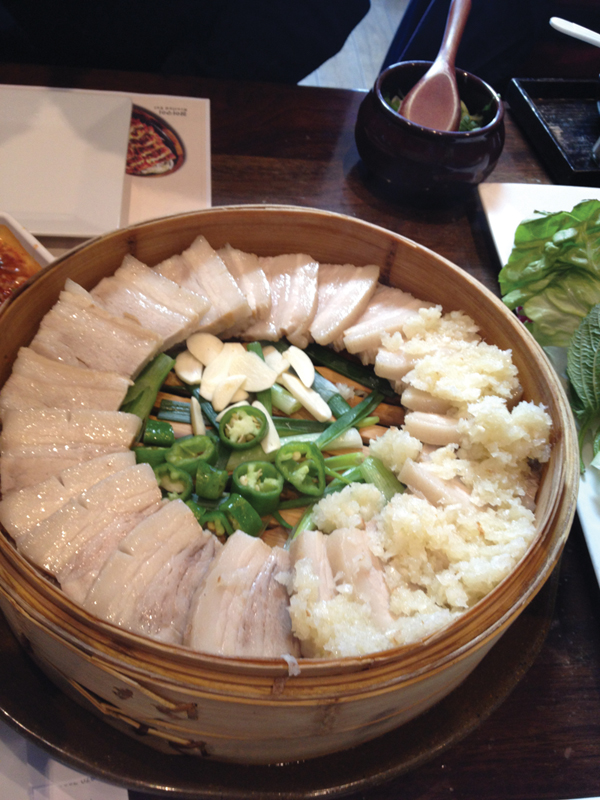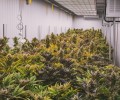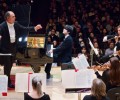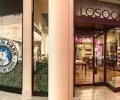| Korean restaurants can improve by creating and focusing on specialized menus |
| 보스톤코리아 2013-06-10, 16:48:19 |
Written by HyunCheon Kim / Translated by JaeMin Woo Many Koreans around Boston are asking for the Korean restaurants in the Boston area to improve by creating and focusing on specialized menus that are more authentic. Koreans that have been to Korean towns in New York City or Los Angeles said, “The food and service were as good as they are in Korea,” and expressed their wishes to visit again. Moreover, people are expecting more restaurants to specialize in authentic stews and noodles such as 'Seolleong-Tang' and 'Naeng-Myun'. Saebyuk Han, a Korean American who recently visited New York City, showed pictures of food that he took on his phone and said, “I wish there were restaurants like that in Boston.” He introduced a restaurant called ‘Tang’, which specializes in ‘Seolleong-Tang’ and ‘Galbi-Tang’ and highly recommended it. Similarly, the food, traditional interior and the service of ‘Kemgangsan’ made it clear that the restaurant specialized in traditional Korean dishes. Han, who saw many Americans at the restaurant, said, “It is very possible to spread Korean culture through food.” Also, a housewife and a recent immigrant from Korea named Jeong-hui Oh, said that “many of the Korean restaurants have similar menus” and wondered why “the restaurants cannot specialize their own unique menus.” She wished that either specialized restaurants from Korea like ‘SinsunSeolleong-Tang’ or ‘Myeong Dong Kalguksu’open up a branch in Boston, or the Korean restaurants that are already here specialize and focus on creating unique menus. Is the economic recession causing the number of Korean customers to decrease? The owners of Korean restaurants are beginning to wonder if the only reason for the decrease in the number of Korean customers is the economic recession. Mi-yeong Lee, who came to America with her children for their education, indicated the similarities between menus from many restaurants and said, “The foods are not that different from the ones we usually eat at home. Korean students might not have the option, but housewives like me rather prefer cooking and eating at home.” As Lee said, the number of Korean customers in the Allston area where many Korean restaurants are located has been decreasing. There are less Koreans showing up in this area, and also many students have returned to Korea for the summer. An office worker named Lee, after visiting a Korean restaurant in Allston a few days ago, said he was surprised to see so few customers in restaurants even during lunchtime. Furthermore, he said that the few customers that he saw were mainly Vietnamese and Chinese students and worried that “from the restaurant’s perspective, this is a serious issue.” He explained that people are trying to spend less during this recession and said, “It is important to think about what else is stopping Koreans from going to Korean restaurants.” The reason why ‘soft-tofu stew’ and ‘jajang-myun’ be come so popular ‘Kaju Tofu House’, which opened in Boston early last year and has been successful ever since, offered a change to Koreans’ food choices. The reason for its success was the soft tofu stews served in earthen pots, raw eggs, rice tea made instantaneously with scorched rice, and most importantly the menu that specialized in soft tofu stews. Moreover, the restaurant gained many Koreans’ attention by suggesting its specialties through its name itself. Similarly, ‘Buk-Kyung’, a ‘jajangmyun’ restaurant that opened in Somerville and Allston around 10 years ago, became prosperous by satisfying the demands from Korean customers. Michelle Lee, the owner of ‘Kaju Tofu House’ who spent an entire year paying the rent and went through inspections and hearings before finally opening, said, “Boston is one of the toughest places to open up new restaurants.” She believed that it was two times as hard as it was on the west coast. However, she emphasized that, “it means the market has a lot of potential.” The competition between Korean restaurants in Boston is nothing compared to the ones in cities on the west coast such as Los Angeles. For instance, the Soju price competition has been noticeably intense in areas like Los Angeles or New York City. Although the average price for a bottle of Soju is around $8-10, competition between restaurants can drop the price down to $4.99 and $3.99 in extreme cases. This is an enormous difference compared to the rather consistent price in Boston that averages around $11.99-14.99. ⓒ 보스톤코리아(http://www.bostonkorea.com), 무단전재 및 재배포 금지 |
 |
 의견목록 [의견수 : 0]
의견목록 [의견수 : 0]
|
 |
| 등록된 의견이 없습니다. | |
|
|
 프리미엄 광고
프리미엄 광고

161 Harvard Avenue, Suite 4D, Allston, MA 02134
Tel. 617-254-4654 | Fax. 617-254-4210 | Email. [email protected]
Copyright(C) 2006-2018 by BostonKorea.com All Rights Reserved.
Designed and Managed by Loopivot.com
























